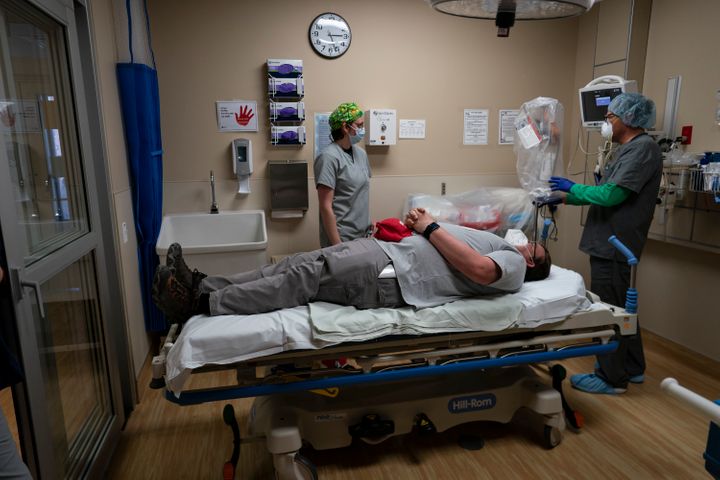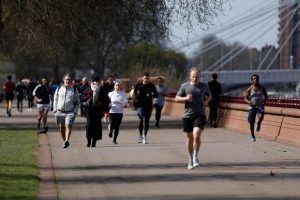Navajo Nation marked a grim milestone on Sunday, recording more coronavirus cases per capita on its reservation than any of the 50 U.S. states.
At least 3,122 cases have been reported on Navajo Nation ― the largest and most populous American Indian reservation in the U.S. According to 2010 census data, about 173,776 people (including both Navajo and non-Navajo) live on the reservation. This means the reservation’s rate of infection is roughly 1,798 per 100,000 people.
By comparison, the states with the most known cases ― New York, New Jersey and Massachusetts ― have reported 1,751 cases per 100,000 people, 1,560 cases and 1,129 cases, respectively.
There have been at least 100 virus-linked deaths on Navajo Nation. Four U.S. states have more deaths per capita than the reservation: New York, New Jersey, Connecticut and Massachusetts. The number of confirmed cases on Navajo Nation has nearly doubled in just two weeks, from 1,716 reported on April 26.
The relatively high rate of testing being done on the reservation may help explain the rate of known infections.
On Sunday, Navajo Nation reported 18,153 tests had been conducted on the reservation, or about 10,452 per 100,000 people. New York state reported over the weekend that 1.2 million people have been tested, or 6,081 per 100,000 people.
On April 23, medical workers at Kayenta Health Center on the Navajo Nation reservation prepare to practice with a new intubation shield to use when intubating patients.
Experts have warned that Indigenous populations are particularly vulnerable to COVID-19, given their high rates of diabetes, heart disease and other underlying conditions. What’s more, an estimated 40% of homes in Navajo Nation are without running water, making essential hygiene practices during a pandemic extremely challenging.
“It’s no secret that in Indian Country, we have one in five that have diabetes and they’re in that vulnerable category so if they were to catch this virus, they are highly likely to have complications from the coronavirus,” Navajo Nation President Jonathan Nez told HuffPost in an interview late last month.
What’s more, many homes on Navajo Nation contain multiple generations of families, making it difficult to curb the contagion, he said.
“When someone gets sick, it is hard for them to self-quarantine or isolate because of the shortage of housing here on the Navajo Nation,” Nez said. “Those are federal obligations to provide infrastructure, including water.”
More than five weeks after President Donald Trump signed into law the CARES Act, which designated $8 billion to tribal governments to assist in their responses to the coronavirus, the Navajo Nation announced it was set to receive $600 million of the funds.
During a news conference Thursday, Navajo officials outlined their plans for the money, which includes funding for health care and educational needs as well as improving water, power and telecommunications infrastructure.
“We’re learning a lot from this current pandemic,” Nez said in a statement Thursday. “This is a prime opportunity to plant the seeds that will help our Navajo people for many years to come.”
A HuffPost Guide To Coronavirus
Calling all HuffPost superfans!
Sign up for membership to become a founding member and help shape HuffPost’s next chapter



















